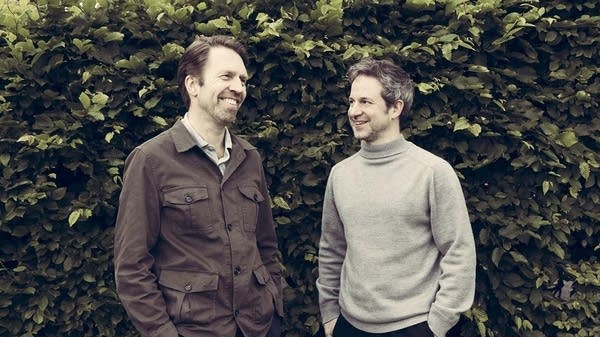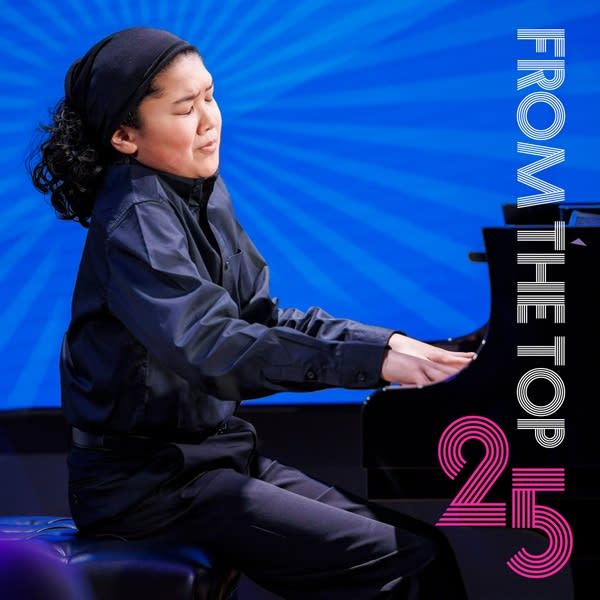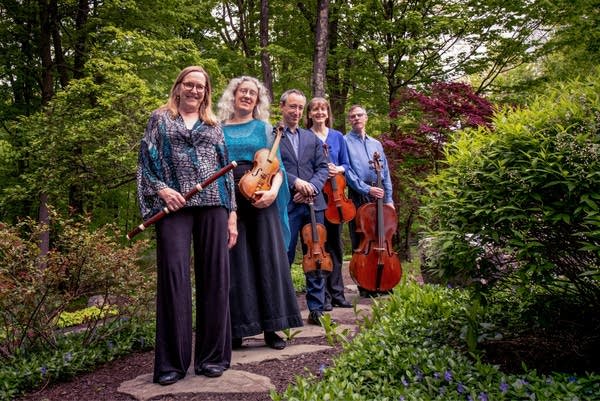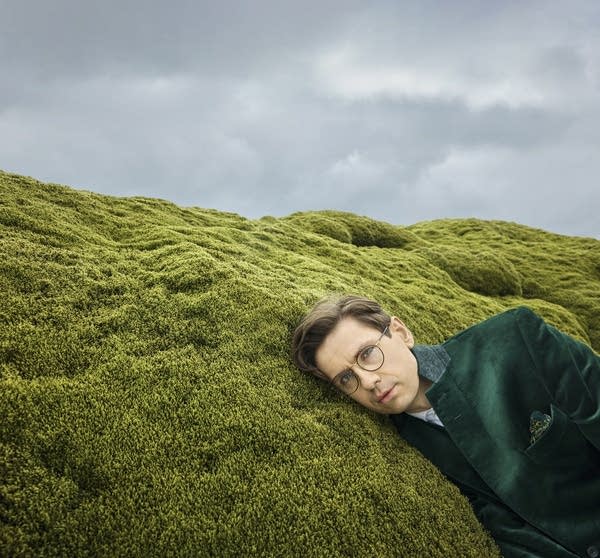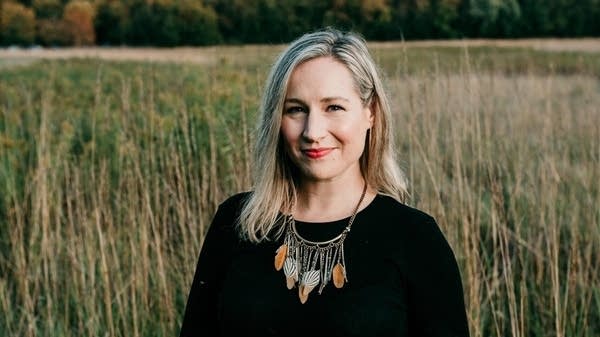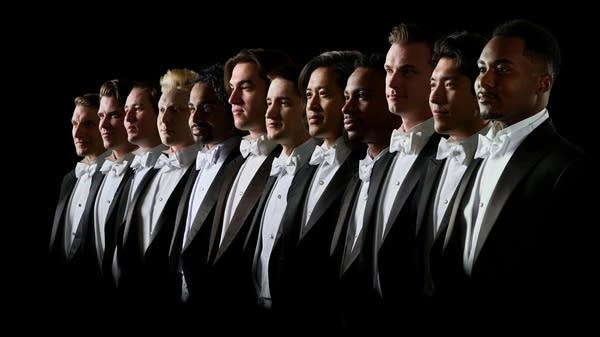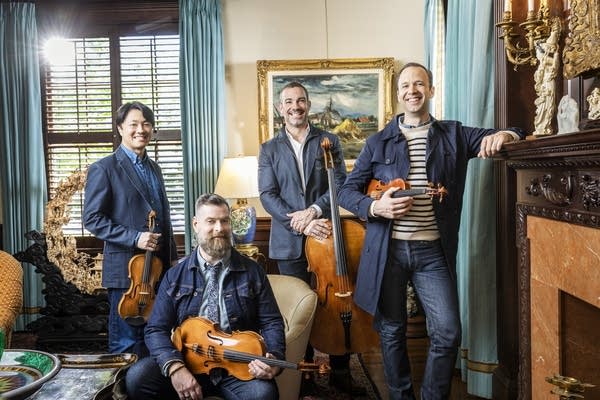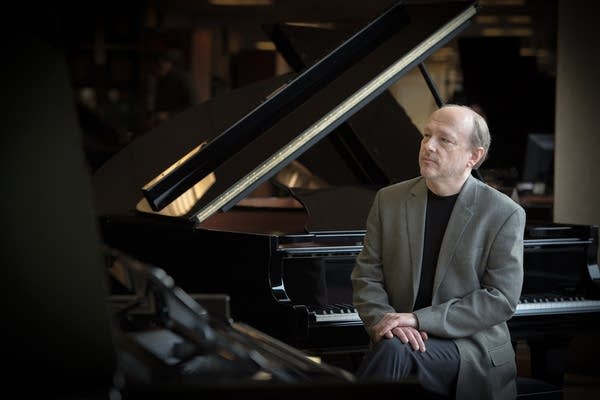
Rachel Barton Pine wears many hats. She's an internationally acclaimed concert violinist, a recording artist, an educator, a philanthropist, and a heavy metal fanatic, who plays an electric violin called the Viper, in her own thrash-and-doom metal band, Earthen Grave. Barton Pine's love of heavy metal has served as a bridge between the worlds of classical music and rock. "It's never been my intention to introduce my classical friends to metal," she explains," but that's accidentally happened along the way. It's great to break down misconceptions both musically and culturally. You don't have to have tattoos to go to a metal concert and you don't have to wear a tux to go to a classical concert, and everybody should just give it a try and feel welcomed and discover music they can really enjoy."
On her latest release with Trio Settecento, you're bound to find something you'll enjoy, as Rachel Barton Pine, Mark Rozendaal and David Schrader share an appealing collection of sonatas that merge various styles and musical ideas. German Baroque music was not a homogenized national style. On the contrary, composers of that era incorporated influences from many different countries. "So you have German composers that were really coming at their music writing from a whole bunch of different perspectives," Barton Pine clarifies, "hence our title, 'A German Bouquet.'"
The Sonata No. 3 in A Major by the little-known 17th century German composer Philipp Heinrich Erlebach sounds like it could have been written by a Frenchman. Rachel Barton Pine explains how Trio Settecento enhances the composer's intentions, "The whole sonata is very French sounding, but the middle movements are French dances. For the liveliness of the dance forms we wanted to have the articulation, the percussive affect of using a harpsichord as our continuo keyboard instrument. For the outer movements which are so florid and melodic, we wanted the sustaining affect of the organ. So, within the course of a single sonata we change between keyboard instruments while John Mark Rozendaal plays the viola da gamba the entire time, and I stick to my cross-tuned baroque violin."
Rachel Barton Pine says the members of Trio Settecento perform the music on "A German Bouquet" in two different configurations, "There are the violin sonatas where both John Mark and David participate as part of the continuo band playing the same bass line, or sharing the bass line together. And there are the trio sonatas where the viola da gamba is in duet with the violin, playing the second solo line, with David at the keyboard taking up continuo duties all by himself. The Krieger sonata is a particularly wonderful example of the violin and viol getting to swap back and forth measure by measure, phrase by phrase. It's just a fantastic dialogue that occurs all the way through the sonata."
Rachel Barton Pine is known for her ability to improvise and she prides herself on creating her own arrangements and writing original cadenzas, many of which appear in a recent collection published by Carl Fischer Music. Barton Pine opens the Sonata in D Major by Johann George Pisendel with a long free-form cadenza; then she improvises measure by measure, "A lot of the spots where ornamentation would occur," she explains, "would be on the slower melody lines where you're kind of decorating. It's like putting ornaments on a Christmas tree, or jewelry on an outfit, you don't want to leave it bare."
The music heard on "A German Bouquet" was most often performed in an intimate, personal setting. Trio Settecento proves that this music was indeed a conversation among friends. Rachel Barton Pine, John Mark Rozendaal and David Schrader create a musical environment that welcomes the listener to discover music from centuries ago that they can really enjoy.
Love the music?
Show your support by making a gift to YourClassical.
Each day, we’re here for you with thoughtful streams that set the tone for your day – not to mention the stories and programs that inspire you to new discovery and help you explore the music you love.
YourClassical is available for free, because we are listener-supported public media. Take a moment to make your gift today.
Your Donation
About New Classical Tracks®
Host Julie Amacher provides an in-depth exploration of a new classical music release each week.
Subscribe on Apple Podcasts, TuneIn, Radio Public, or RSS.


